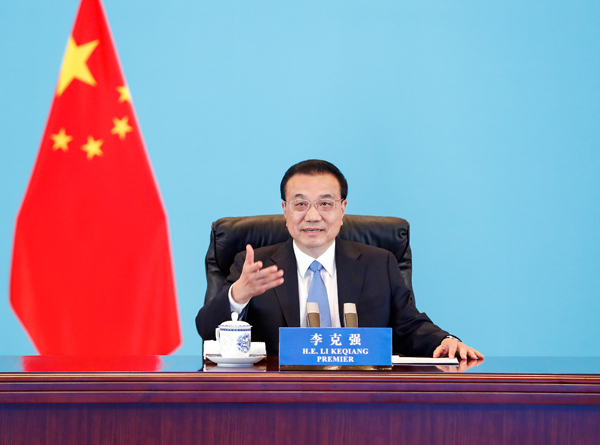Premier Li Keqiang held a roundtable meeting with leaders of six international economic and financial institutions via video link in Beijing on Nov 24.

Unlike previous economic and financial crises, the COVID-19 outbreak has directly impacted consumption, smaller enterprises and individual businesses, and then low-income groups and people’s livelihoods, Premier Li said.
As long as the more-than-100-million market entities are secured, employment is secured, which is the source of income and consumption, and the driver of the economy.
Through market-oriented measures, the government has been pooling policy resources to market entities to tide over difficulties, especially smaller enterprises and individual businesses.
China is expected to slash corporate tax and fee cuts by 2.5 trillion yuan for the whole year, including 1.6 trillion yuan of contributions to social security premiums, Premier Li said.
China also has raised its fiscal deficit ratio and issued 2 trillion yuan in government bonds for epidemic control.
To make macroeconomic policies take effect in a timely manner, a special mechanism has been built to fill fiscal gaps at city or county levels caused by tax and fee cuts.
The government also has strengthened counter-cyclical adjustments, provided liquidity support to the real economy and adopted policy tools directly facing physical enterprises.
Also, the government has been strengthening employment-priority policies and stabilizing and expanding employment through market-oriented means.
China will maintain the continuity and stability of its macroeconomic policies, and make them more sustainable and effective, Premier Li said.
The government will keep adopting positive fiscal policies, prudent monetary policies and employment-priority policies, with improvements made according to situations to make the economy run within an appropriate range.